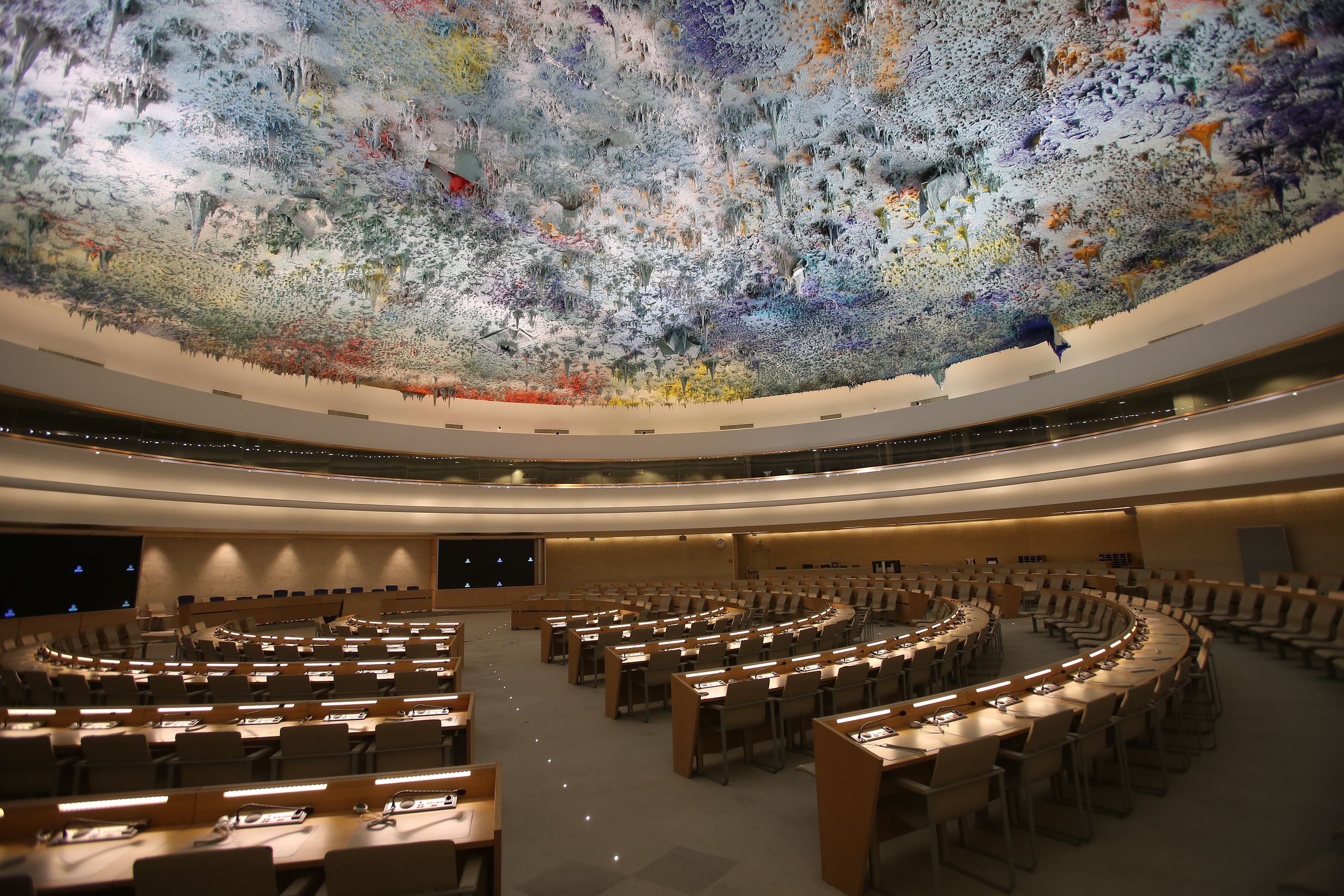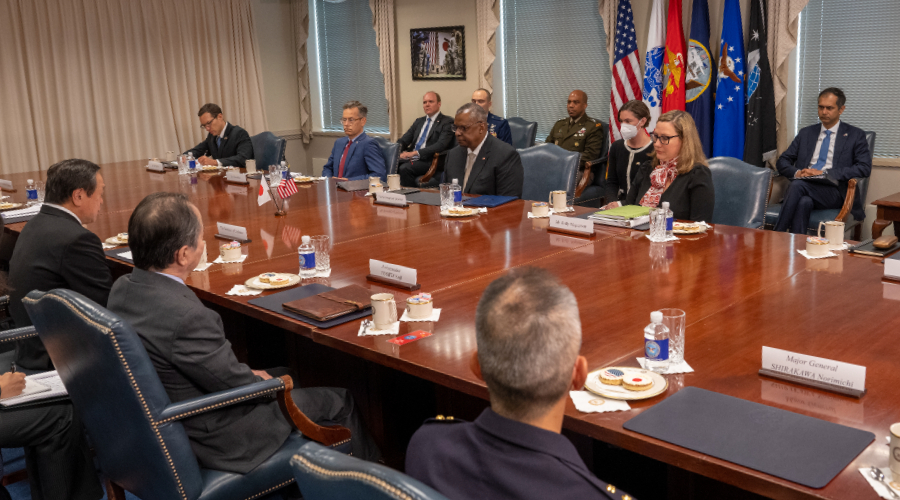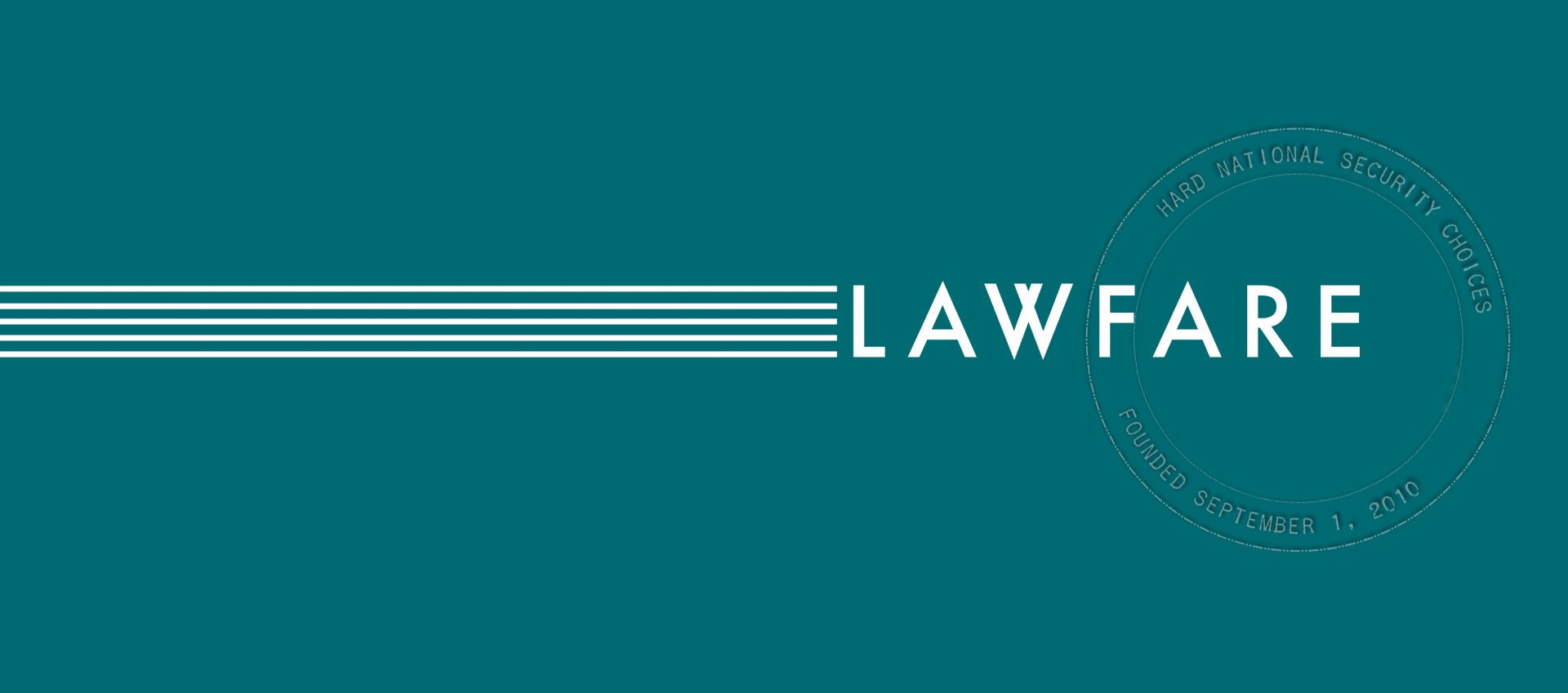-

A Lurking Threat: State Emergency Powers in Elections
The authority to both define state emergencies and exercise state statutory emergency powers rests almost entirely with America’s governors. When emergencies—real or supposed—and elections intersect, sta... -

Incentivizing High-Performing Cybersecurity Programs in the Banking Sector
Recent cyberattacks targeting financial institutions highlight the need for a high-performing cybersecurity program across the banking sector; voluntary programs modeled after anti-terrorism public-priva... -

Wyden Releases Reports on DHS Surveillance and Interrogation of Portland Protestors
A recently released report from the Office of Intelligence and Analysis with revised redactions reveals deficiencies in the Department of Homeland Security’s 2020 operations in Portland, Oregon. -

The Cyberlaw Podcast: Coming Soon: TwitTok!
The latest episode of the Cyberlaw Podcast. -

International Criminal Court Resumes Investigation Into Afghanistan
In an Oct. 31 decision the International Criminal Court’s Pre-Trial Chamber II found that the government of Afghanistan failed to properly investigate alleged crimes against humanity and war crimes commi... -

Taking the Pelosi Attack Seriously
Coverage of the incident seems to have downplayed the significance of a kidnapping attempt and possibly even an assassination attempt against the speaker of the House, the woman third in line to the pres... -

The Lawfare Podcast: The Biden Administration's Grand Strategy in Three Documents, with Richard Fontaine
-

Correcting Our Errors
-

The Facial Recognition Act: A Promising Path to Put Guardrails on a Dangerously Unregulated Surveillance Technology
There’s consensus in Congress that facial recognition needs to be reined in, but not nearly enough action to bring about effective rules. A new bill could jump-start the debate and move the nation toward... -

A Central Role for Climate Change in the New U.S. National Security Strategy
The new NSS is right to recognize that climate change is not a “soft” security issue; it is not less important than direct threats from states but is at the heart of keeping the U.S. safe. -

Paul Pelosi Attacker Charged with Assault and Attempted Kidnapping
DePape was charged with one count of assault on an immediate family member of a United States official with the intent to retaliate against the official on account of the performance of official duties i... -

The Week That Will Be
Lawfare's weekly roundup of event announcements and employment opportunities. -

The Lawfare Podcast: Danielle Citron on Intimate Privacy and How to Preserve It in a Digital Age
-

Editor's Note
-

TechTank: Latino Voters, Midterm Elections, and the Effects of Misinformation, and Disinformation
The latest episode of TechTank. -

What the United Nations Guiding Principles for Business and Human Rights (Don’t) Say About Content Moderation
Facebook’s Oversight Board presents itself as an executor of the global public interest embedded in international law. But in reality, the board uses international law in an imaginative and incoherent fa... -

Democratic Governments Are Failing to Leverage Technology Companies
In 2022, no discussion of foreign policy should occur without considering the role of major tech companies. The costs of passivity in coordination are high, and missed opportunities for democracy and hum... -

How Should the U.S. Military Share Secrets?
The new National Defense Strategy calls for working closely with partners and allies, but the convoluted and slow disclosure process makes cooperation difficult. -

The Week That Was: All of Lawfare in One Post
Your weekly summary of everything on the site. -

The Lawfare Podcast: Why the First Amendment Doesn’t Protect Trump’s Jan. 6 Speech
More Articles
-

Lawfare Daily: Deploying the Military at the Southern Border, with Chris Mirasola
Can President-elect Trump deploy the National Guard to the souther border? -

Chatter: 1876, Election Security, and National Security, with Rachel Shelden
Discussing the disputed presidential election of 1876. -

The Situation: Jack Smith Throws in the Towel
In January, a man whom the Justice Department argued only today has committed grave crimes for which the evidence is strong will become president of the United States.















-(1).jpeg?sfvrsn=143eb65_5)
